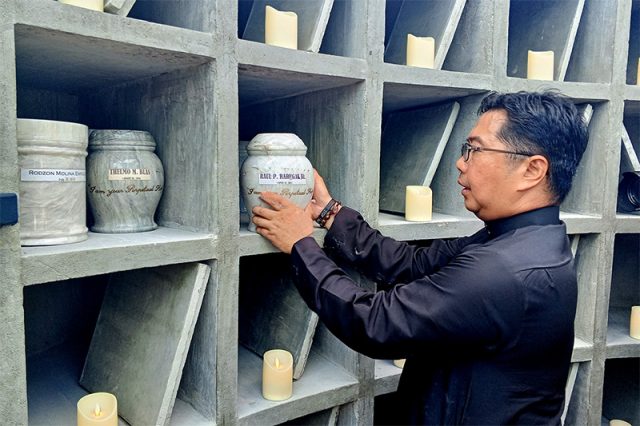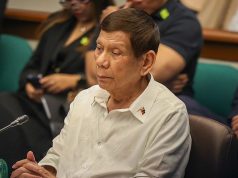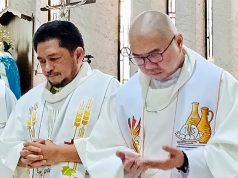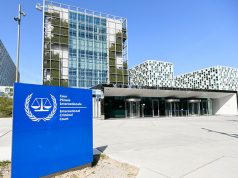
A shrine was inaugurated on Wednesday at a Catholic cemetery in Metro Manila for the victims of extrajudicial killings (EJK) during the drug war waged by former President Rodrigo Duterte.
Priests blessed the “Dambana ng Paghilom” (Shrine of Healing) and held its first inurnment for EJK victims inside the Laloma Cemetery in Caloocan City.
The 36-square meter memorial site was initiated by the Arnold Janssen Kalinga Foundation Inc (AJKFI), with the support of, among others, the Diocese of Kalookan, which donated the land for the project.
Society of Divine Word (SVD) priest Fr. Flavie Villanueva said the shrine and columbarium symbolize more than just a final resting place for those killed.
“It is also a statement of hope,” Villanueva said.
“Evil will never persist if men, women, senators, ambassadors, people of good conscience, human rights advocates, seminarians, sisters, religious, people at the margins will continue to stand firm for life, truth, and peace,” he said.
In 2017, the priest founded Program Paghilom, a Church-based initiative that initially offered legal and psychosocial support to the widows, orphans and bereaved families of the drug war.
In recent months, he expanded the program to include exhumation, autopsy and cremation.
Villanueva lamented the plight of EJK victims’ families who are unable to prioritize securing their loved ones’ remains due to poverty.
Dambana ng Paghilom is now a concrete answer to their needs. “This was once a hope, and it is now real,” he added.
Aurora Blas, a widow of an EJK victim, said the memorial site would help expose the truth about Duterte’s violent and bloody drug war.
“…When this project came about, I was so happy because this would be the way for the truth to come out, that my husband did not die from natural causes but from gunshot wounds,” she shared.
Blas, who joined Program Paghilom after her husband’s killing, talked about how her husband’s death certificate indicated “pneumonia” as the cause of death despite sustaining gunshot wounds, specifically on the right side of the head.
“Even if the truth was as clear to me and to my children as daylight, because I was no longer thinking straight and because of my desire that his body be released and prepared as soon as possible, I turned a blind eye and signed,” she added in Filipino, detailing how she was also made to sign a waiver that said she would not press charges or pursue a case against her husband’s killers.
After the ribbon-cutting, family members of EJK victims witnessed the inurnment of 11 urns containing the remains of their loved ones lost to the drug war.
More than 250 people witnessed the inauguration including former senator Leila De Lima, European Union Ambassador Luc Veron, German Ambassador Andreas Michael Pfaffernoschke, Dutch Ambassador Marielle Geraedts, British Ambassador Laure Beaufils, and Senator Risa Hontiveros.
Pfaffernoschke said being at the event was quite personal because it reminded him of what happened to his own country during the Holocaust.
“This memorial helps us not to forget and reminds us of our obligation to the future,” he said.
Geraedts, who has encountered the EJK families of Program Paghilom several times already, said their stories touch her deeply. “I share pain, sorrow …this journey of healing,” she said.
Sharing her message in Filipino, Beaufils expressed the British government’s support for the families, saying, “Hindi sila nakakalimutan” (They are not forgotten).








